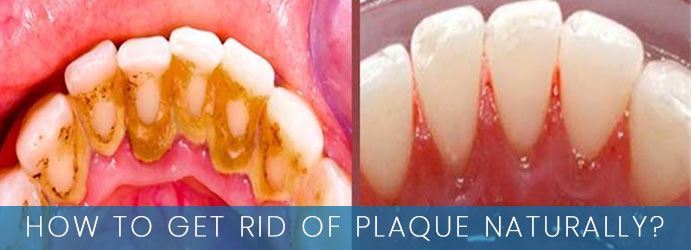How can I take care of my cavity-prone teeth?
Taking care of teeth with cavities involves a combination of at-home care and professional dental treatment. Here are steps you can take to manage and care for your cavity-prone teeth:
- Visit Your Dentist: Schedule regular dental check-ups and follow your dentist’s recommendations for cavity treatment. They can assess the extent of the cavities and provide appropriate treatment options, which may include fillings, crowns, or other restorative procedures.
- Maintain Good Oral Hygiene: Continue to brush your teeth thoroughly at least twice a day using fluoride toothpaste. Pay extra attention to the areas around and on top of the cavities. Use a soft-bristle toothbrush to avoid further damage to your tooth enamel.
- Floss Daily: Flossing is essential for removing plaque and food particles from between your teeth, where cavities often develop. Be gentle when flossing around cavities to avoid causing discomfort.
- Use Fluoride Products: Consider using fluoride mouthwash or a fluoride gel recommended by your dentist. Fluoride helps strengthen tooth enamel and can slow the progression of cavities.
- Modify Your Diet: Limit sugary and starchy foods and beverages, as they can contribute to the development of new cavities and worsen existing ones. Opt for a diet rich in fruits, vegetables, lean proteins, and whole grains.
- Chew Sugarless Gum: Chewing sugarless gum after meals can stimulate saliva production, which helps neutralize acids and remove food particles from your teeth.
- Stay Hydrated: Drink plenty of water throughout the day to help rinse away food debris and bacteria. Water is especially beneficial after consuming acidic or sugary foods and beverages.
- Consider Sealants: Dental sealants are thin, protective coatings applied to the chewing surfaces of molars to prevent cavity formation. Consult with your dentist to determine if sealants are appropriate for your situation.
- Avoid Smoking and Tobacco Products: Smoking and tobacco use can contribute to tooth decay and gum disease. Quitting or reducing tobacco use can benefit your oral health.
- Address Sensitivity: If you experience tooth sensitivity due to cavities, speak with your dentist. They can recommend desensitizing toothpaste or other products to alleviate discomfort.
- Follow Post-Treatment Instructions: If you receive dental restorations like fillings or crowns, follow your dentist’s post-treatment care instructions carefully to ensure the longevity of the restorations.
- Regular Dental Check-Ups: Continue to schedule regular dental check-ups to monitor the condition of your cavity-prone teeth and receive timely treatment for any new or developing cavities.
Cavity-prone teeth require ongoing care and attention to prevent further decay and maintain your oral health. Your dentist is your best resource for personalized advice and treatment options, so be sure to communicate any concerns or questions you have about caring for your specific dental needs.
Can dental cavities heal naturally?
Dental cavities (tooth decay) cannot heal or repair themselves naturally once they have formed. Once the hard enamel surface of a tooth is damaged by the acids produced by bacteria in plaque, the damage is permanent and irreversible. Dental cavities are essentially holes or openings in the tooth structure, and these openings do not naturally close up or regenerate.
However, there are certain circumstances where early-stage cavities (incipient or “pre-cavities”) can be arrested or remineralized through good oral hygiene practices and fluoride exposure. This process does not reverse existing cavities but can halt the progression of very early decay before it develops into a full-blown cavity.
Here’s how it works:
- Fluoride: Fluoride is a naturally occurring mineral that can help remineralize weakened tooth enamel. Fluoride can be found in toothpaste, mouthwash, and tap water in many areas. Using fluoride toothpaste and mouthwash can assist in strengthening enamel and preventing further decay.
- Good Oral Hygiene: Regular and thorough oral hygiene practices, such as brushing your teeth with fluoride toothpaste at least twice a day and flossing daily, can help remove plaque and bacteria from the tooth’s surface. This, in turn, can help slow down or stop the progression of early cavities.
- Dietary Modifications: Reducing the consumption of sugary and starchy foods and beverages can help minimize the amount of acid produced by bacteria in the mouth, which can contribute to tooth decay.
While these measures can be effective in preventing the worsening of early-stage cavities, they are not a substitute for professional dental care. Once a cavity has progressed beyond the initial stages and has caused structural damage to the tooth, it requires dental treatment such as fillings, crowns, or other restorative procedures to repair the tooth.
It’s essential to visit your dentist regularly for dental check-ups and professional cleanings. Dentists can detect cavities in their early stages when they are most amenable to remineralization or minimally invasive treatments. If you suspect you have a cavity or are experiencing tooth pain or sensitivity, it’s important to seek professional dental care promptly to prevent further damage and complications.
How do you stop cavities from spreading?
Stopping cavities from spreading involves addressing the underlying causes of tooth decay and taking steps to prevent further damage to affected teeth. Here are some strategies to help stop cavities from spreading:
- Professional Dental Treatment: The most effective way to stop cavities from spreading is to visit a dentist for professional dental treatment. Dentists can assess the extent of the cavities and provide appropriate restorative procedures. Common treatments include fillings, crowns, and in some cases, root canals if the decay has reached the tooth’s pulp (innermost part).
- Maintain Good Oral Hygiene: Continue to practice excellent oral hygiene by brushing your teeth at least twice a day with fluoride toothpaste and flossing daily. Pay close attention to the areas around and on top of the cavities while brushing.
- Use Fluoride Products: Fluoride is beneficial for strengthening tooth enamel and preventing further decay. Consider using fluoride mouthwash or a fluoride gel recommended by your dentist.
- Limit Sugary and Starchy Foods: Reduce your consumption of sugary and starchy foods and beverages, as they can contribute to plaque formation and tooth decay. Opt for a balanced diet rich in fruits, vegetables, lean proteins, and whole grains.
- Chew Sugarless Gum: Chewing sugarless gum after meals can stimulate saliva production, which helps neutralize acids and remove food particles from your teeth.
- Stay Hydrated: Drink plenty of water throughout the day to help rinse away food debris and bacteria. Water is especially beneficial after consuming acidic or sugary foods and beverages.
- Sealants: If you have deep pits and fissures on your molars, ask your dentist about dental sealants. Sealants are protective coatings applied to the chewing surfaces of molars to prevent cavity formation.
- Avoid Smoking and Tobacco Products: Smoking and tobacco use can contribute to tooth decay and gum disease. Quitting or reducing tobacco use can benefit your oral health.
- Follow Post-Treatment Instructions: If you have received dental restorations such as fillings or crowns, adhere to your dentist’s post-treatment care instructions carefully to ensure the longevity of the restorations.
- Regular Dental Check-Ups: Maintain a schedule of regular dental check-ups (usually recommended every six months) to monitor the condition of your teeth and address any new or developing cavities promptly.
Stopping cavities from spreading requires a combination of professional dental care and ongoing oral hygiene practices. Your dentist can assess your specific situation, provide appropriate treatment, and offer personalized recommendations for preventing further cavities.
Can I stop a cavity from getting worse?
Yes, you can take steps to prevent a cavity from getting worse, especially if the cavity is detected in its early stages (incipient or “pre-cavity”). Here are some strategies to help prevent the progression of a cavity:
- Maintain Good Oral Hygiene: Brush your teeth thoroughly at least twice a day with fluoride toothpaste and use dental floss daily. Be gentle when brushing and flossing around the affected tooth to avoid further enamel damage.
- Use Fluoride Products: Fluoride helps strengthen tooth enamel and can slow down or stop the progression of early cavities. Consider using fluoride toothpaste and mouthwash as recommended by your dentist.
- Limit Sugary and Starchy Foods: Reduce your consumption of sugary and starchy foods and beverages, as they can contribute to plaque formation and cavity development. Opt for a diet rich in fruits, vegetables, lean proteins, and whole grains.
- Chew Sugarless Gum: Chewing sugarless gum after meals can stimulate saliva production, which helps neutralize acids and remove food particles from your teeth.
- Stay Hydrated: Drink plenty of water throughout the day to help rinse away food debris and bacteria. Water is especially beneficial after consuming acidic or sugary foods and beverages.
- Fluoride Varnish: Your dentist may recommend applying a fluoride varnish to the affected tooth. Fluoride varnish is a concentrated fluoride treatment that can strengthen the enamel and help prevent further decay.
- Sealants: If you have deep pits and fissures on your molars, ask your dentist about dental sealants. Sealants are protective coatings applied to the chewing surfaces of molars to prevent cavity formation.
- Regular Dental Check-Ups: Maintain a schedule of regular dental check-ups (usually recommended every six months). During these appointments, your dentist can monitor the cavity’s progression and provide timely treatment as needed.
- Discuss Treatment Options: If your cavity is in its early stages, consult with your dentist about non-invasive treatments like fluoride treatments or remineralization procedures to help arrest the decay.
- Follow Post-Treatment Instructions: If you receive dental restorations such as fillings, crowns, or other treatments, follow your dentist’s post-treatment care instructions carefully to ensure the success and longevity of the restorations.
It’s important to note that while these strategies can help slow down or stop the progression of early cavities, once a cavity has caused significant structural damage to the tooth, professional dental treatment, such as a filling, is necessary to restore the tooth’s function and prevent further damage. Regular dental check-ups are crucial for early detection and treatment of cavities.
Why am I getting so many cavities?
Experiencing frequent cavities can be attributed to various factors, and understanding the underlying causes can help you take steps to prevent further tooth decay. Here are some common reasons why individuals may develop many cavities:
- Poor Oral Hygiene: Inadequate brushing and flossing can allow plaque (a soft, sticky film of bacteria) to build up on your teeth. Plaque contains bacteria that produce acids, which can erode tooth enamel and lead to cavities.
- Dietary Habits: Consuming sugary and starchy foods and beverages provides a food source for cavity-causing bacteria. Frequent snacking on these items or sipping sugary drinks throughout the day can increase the risk of cavities.
- Lack of Fluoride: Fluoride is a mineral that helps strengthen tooth enamel and makes it more resistant to acid attacks. If your water supply does not contain fluoride or you are not using fluoride toothpaste, you may be at a higher risk of cavities.
- Dry Mouth: A dry mouth (xerostomia) can contribute to cavities because saliva helps neutralize acids, rinse away food particles, and prevent plaque buildup. Dry mouth can result from certain medications, medical conditions, or lifestyle factors.
- Medical Conditions: Some medical conditions, such as gastroesophageal reflux disease (GERD), eating disorders, and autoimmune diseases, can increase the risk of cavities due to acid exposure or decreased saliva production.
- Deep Tooth Grooves: Deep pits and fissures on the chewing surfaces of molars can trap food particles and make it challenging to clean effectively, increasing the risk of cavities.
- Genetics: Genetic factors can play a role in an individual’s susceptibility to cavities, including factors related to the composition of saliva and tooth enamel.
- Infrequent Dental Check-Ups: Skipping or delaying dental check-ups and professional cleanings can allow cavities to progress without detection or treatment.
- Oral Habits: Habits like teeth grinding (bruxism) or using your teeth as tools can cause enamel wear and increase the risk of cavities.
- Inadequate Dental Care for Children: If children do not receive proper dental care and preventive measures like sealants and fluoride treatments, they may be more prone to cavities.
To reduce your risk of cavities and improve your oral health:
- Maintain a consistent and thorough oral hygiene routine, including brushing your teeth at least twice a day with fluoride toothpaste and flossing daily.
- Limit sugary and starchy foods and beverages in your diet.
- Use fluoride toothpaste and mouthwash as recommended by your dentist.
- Stay hydrated by drinking water throughout the day.
- Schedule regular dental check-ups and professional cleanings (usually recommended every six months).
- If you have dry mouth due to medications or medical conditions, discuss options for managing it with your healthcare provider.
If you are experiencing a high number of cavities despite your efforts to prevent them, consult with your dentist. They can assess your specific situation, identify contributing factors, and provide personalized recommendations for cavity prevention and treatment.
At what point is a cavity bad?
The severity of a cavity (tooth decay) can vary, and it’s typically categorized into different stages based on its progression and impact on the tooth structure. Dentists assess the severity of cavities using various criteria, including the extent of decay, the location on the tooth, and any associated symptoms. Here are the general stages of cavity severity:
- Incipient or Early Cavity: At this stage, the cavity is in its earliest form and may not have penetrated the enamel (the outer protective layer of the tooth). These cavities are often reversible with proper oral hygiene and fluoride treatments because they have not caused significant damage to the tooth.
- Moderate Cavity: In this stage, the cavity has progressed beyond the enamel and may have reached the dentin, the inner layer of the tooth. Dentin is softer than enamel, so decay can progress more rapidly at this point. Moderate cavities typically require restorative treatment, such as a dental filling.
- Advanced Cavity: When a cavity has advanced further into the dentin, it can become larger and deeper. Advanced cavities are more likely to cause symptoms such as tooth sensitivity, pain, or discomfort. Treatment options may include larger fillings, inlays, onlays, or crowns.
- Severe Cavity: Severe cavities have reached the innermost part of the tooth, called the pulp. This stage is often associated with intense pain, abscess formation, and potential damage to the tooth’s nerve. Treatment options may include root canal therapy or, in some cases, tooth extraction.
The severity of a cavity is determined by a dentist during a dental examination. They will use clinical and radiographic (X-ray) assessments to evaluate the extent of decay and recommend an appropriate treatment plan.
It’s important to address cavities as early as possible to prevent them from progressing to more severe stages. Regular dental check-ups are crucial for detecting cavities in their early stages when they are easier to treat. If you suspect you have a cavity or are experiencing tooth pain, sensitivity, or any other symptoms, it’s essential to schedule an appointment with your dentist promptly for an evaluation and appropriate treatment. Delaying treatment can lead to more extensive dental problems and potentially more invasive and costly procedures.
What toothpaste is best for cavities?
The best toothpaste for preventing cavities typically contains fluoride, which is a mineral known for its ability to strengthen tooth enamel and make it more resistant to acid attacks from plaque bacteria. Look for toothpaste labels that mention “fluoride” as one of the active ingredients. Fluoride toothpaste helps protect your teeth against cavities and tooth decay. Beyond fluoride, there are various types of toothpaste formulations available to address specific needs or preferences:
- Anti-Cavity or Fluoride Toothpaste: These toothpaste variants are formulated with fluoride as the primary active ingredient. They help strengthen enamel, prevent cavities, and promote overall oral health. Most toothpaste brands offer fluoride options.
- Toothpaste for Sensitive Teeth: If you have sensitive teeth, consider using a toothpaste specifically designed for sensitive teeth. These toothpastes often contain potassium nitrate or strontium chloride to help alleviate tooth sensitivity. They can still contain fluoride for cavity prevention.
- Tartar Control Toothpaste: Tartar control toothpaste contains ingredients like pyrophosphates or zinc citrate, which can help reduce the buildup of tartar on your teeth. This is especially useful if you are prone to tartar formation.
- Whitening Toothpaste: Whitening toothpaste often includes mild abrasives and polishing agents to remove surface stains and brighten your teeth. These toothpastes may also contain fluoride for cavity protection.
- Natural or Herbal Toothpaste: Some people prefer natural or herbal toothpaste options that do not contain artificial ingredients or fluoride. Be aware that natural toothpaste may not be as effective at cavity prevention as fluoride toothpaste.
- Children’s Toothpaste: Children’s toothpaste typically contains a lower concentration of fluoride to minimize the risk of swallowing excessive fluoride. It’s essential to use toothpaste specifically designed for children to ensure their safety.
When choosing a toothpaste for cavity prevention, it’s important to consider your specific oral health needs and preferences. Be sure to:
- Use a toothpaste that has the American Dental Association (ADA) seal of approval, indicating it meets the organization’s standards for safety and efficacy.
- Follow your dentist’s recommendations for toothpaste, especially if you have specific oral health concerns.
- Use toothpaste that you find pleasant in taste and texture to encourage consistent brushing.
Remember that toothpaste is just one part of a comprehensive oral hygiene routine. Proper brushing technique, regular flossing, and routine dental check-ups are also essential for maintaining good oral health and preventing cavities. If you have specific questions or concerns about your oral care routine, consult with your dentist or dental hygienist for personalized guidance.







